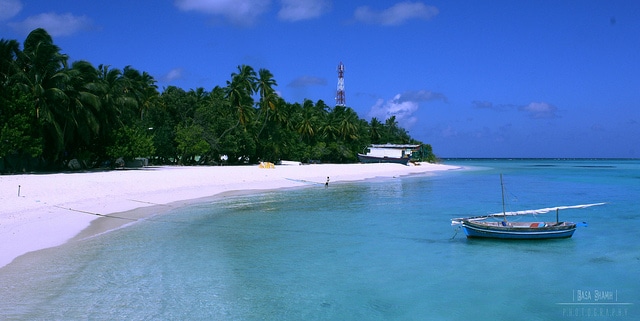In less than a decade, climate change-induced sea level rise could force thousands of people to migrate from some small island developing states (SIDS), according to the executive director of the United Nations Environment Program.
The world’s 52 small island developing states (SIDS) increasingly share sea level rise and other escalating environmental threats that are further aggravated by economic insecurities, Achim Steiner added.
“What makes this situation even more grievous is that the climate change threats facing many SIDS are by-and-large not of their own making,” Steiner wrote in The Guardian. “Their total combined annual carbon dioxide output, although rising, accounts for less than 1% of global emissions.”
In his commentary, published in advance of this week’s third international conference on Small Island Developing States in Samoa, Steiner said small island states are suffering disproportionately from acts of environmental negligence of which humankind is collectively guilty.
“Larger economies, until recently, have managed better than small ones to mask the impacts of exhausting their natural capital and contributing heavily to greenhouse gas emissions, but the consequences of this neglect are catching up with them too,” he said.
Steiner said that recent Intergovernmental Panel on Climate Change estimates indicate that if average global temperatures increase by approximately 4 C, sea levels could rise as much as one metre by 2100.
That scenario, he added, “would see nations such as Kiribati, Maldives, Marshall Islands and Tuvalu become uninhabitable, while a large share of the population of many other SIDS could be displaced or otherwise.”
Addressing the conference, UN Secretary-General Ban Ki-moon said in a press release Monday that the world needs to listen to small islands as their issues have global consequences.
“I see small island developing states as a magnifying glass,” Ban said. “When we look through [their] lens, we see the vulnerabilities we all face. And by addressing the issues facing small island developing states we are developing the tools we need to promote sustainable development across the entire world.”
Ban added that the plight of small island developing states highlights the moral case for climate action. “By failing to act, we condemn the most vulnerable to unacceptable disruption to their lives.”
He also urged governments to commit to significant action at the Sept. 23 climate summit in New York.
“Small island developing states will have an important role. You can tell the largest emitters what action you expect from them. And you can show how you are working to build resilience and create the green economies of the future,” he said.
Samoan Prime Minister Tuilaepa Aiono Sailele Malielegaoi said global action is required to deal with sea level rise caused by climate change.
“Climate change is a global problem, yet international action to address it, remains grossly inadequate,” the Samoan prime minister said.
In addition to dealing with the ramifications of climate change, the conference is addressing environmental degradation and access to energy.
Photo: Easa Shamih via Flickr
Subscribe to our newsletter
Stay up to date with DeSmog news and alerts







